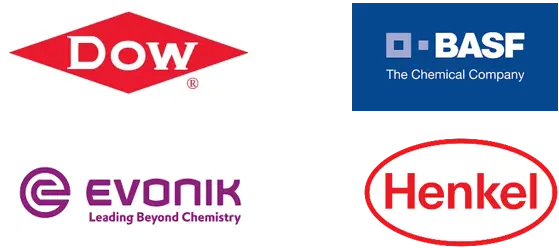Higher Olefins Market Size and Share:
According to Reports and Insights analysis, the global higher olefins market is estimated to be US$ 8.4 Bn in 2022. Furthermore, the higher olefins market to register a CAGR of 5.1% which is expected to result in market forecast value for 2030 as US$ 12.5 Bn.
Olefins are unsaturated hydrocarbons commonly known as an alkene. Olefin has one or more pairs of carbon atoms connected by double bonds. Higher olefin compounds are mostly employed as precursors to other chemicals such polymers, fatty acids, plasticizer alcohols, surfactants, lubricants, amine oxides, and detergent alcohols. Detergents, lubricants, hydraulic fluids, drilling fluids, and waxes are just a few applications for products created with higher olefins.
Higher Olefins Market Dynamics:
Market dynamics covered market drivers, opportunities, restraints and challenges
Market Drivers
Improved exploitation of Olefins:
The market's growth has been considerably impacted by the increasing use of olefins in the automotive industry. An important factor supporting the expansion of the higher olefins market during the forecast period is the increased demand for polycarbonates. Further, the rise of the food and beverage industry, which has a high need for packaging materials, is greatly aided by the growing global population, and this trend is positively affecting the market for olefins. The key force behind market expansion is the growing automobile sector, which mandates the use of high-quality olefin in the construction of automobile interiors.
Increasing Demand for Synthetic Lubricants Based on PAO
Due to their desirable characteristics, including their high viscosity index, thermal stability, oxidative stability, compatibility with mineral oils, and low toxicity, PAOs have swiftly gained appeal as high-performance lubricants. In addition to offering technological advantages, PAOs can aid in preserving environmental quality in some delicate applications. Improved performance is offered by synthetic lubricants based on PAO in offshore drilling applications with environmental considerations. Additionally, some PAOs can be used in place of vegetable-based oils because they are biodegradable in some cases. Synthetic lubricants with PAO bases have a propensity to remove drilling-related performance flaws. The robust expansion of the total olefins industry is further aided by the increasing demand for synthetic lubricants based on PAO.
The increased need for engine oils will further accelerate the market for olefins' growth rate. Internal olefins' increasing use in oil drilling and related activities will also fuel market value growth. The market is expected to grow as a result of the rise in demand for agrochemicals in developing and agrarian nations.
Market Opportunities
Increase in Innovation and booming Investments
In addition, expanding innovations and improvements in manufacturing techniques that boost the efficacy of the production process and improve the product providing further broaden the market participants' lucrative chances from 2022 to 2030. Moreover, the market for olefins will continue to expand due to rise in investments in research and development.
Market Restraints & Challenges
Variation in the Prices of Raw Material
The higher olefins market is significantly impacted by fluctuating raw material prices. Olefin production costs climb in lockstep with the price of raw materials. This will result in a spike in the overall costs for the manufacturers. Therefore, the market expansion for olefins would be hampered by the shifting pricing of the raw materials used in their production.
Environment policy
Further, the rigorous environmental rules governing the manufacture and processing of crude oil byproducts could pose a threat to the expansion of the olefins industry.
Because of increasing global demand for greener and cleaner industrial fluids and tightening emission regulations in a number of developed and developing economies, the market for olefins is predicted to grow quickly over the forecast period.
Additionally, the market is anticipated to be pushed by a growth in the usage of internal olefins in oil drilling and related activities as the need for crude oil and its derivatives increases on a global scale. These factors have therefore guaranteed the market's continued growth.
Higher Olefins Market Regional Outlook:
According to the latest higher olefins market growth forecast, North America will maintain its dominance over the market in terms of revenue and market share. Due to the region's better yield and strict environmental laws, the market has grown significantly.
It is anticipated that Asia-Pacific would have profitable growth during the projection period of 2022-2030 as a result of rise in building activities brought on by the region's rapid urbanization and the rapidly expanding automobile industry.
The nation portion of the research also lists specific market-impacting elements and modifications to market regulation that have an effect on the market's present and future developments. Data points including technical trends, porter's five forces analysis, case studies, and upstream and downstream value chain analyses are just a few of the indicators utilized to anticipate the market environment for certain nations. When giving prediction analysis of the country data, it also takes into account the presence and accessibility of international brands as well as the difficulties they encounter due to strong or weak competition from local and domestic brands, the influence of domestic tariffs, and trade routes.
Higher Olefins Market Key Players:
Major players of the higher olefins market are; Altech Chemicals, Baikowski Pure Solutions, Shell, ExxonMobil, Sinopec, Dalian Hiland Photoelectric Material,Nippon Light Metal Holdings Company, Orbite Technologies, Rusal, Sasol, Sumitomo Chemical, Xuan Cheng Jing Rui New Material, Zibo Honghe Chemical.
Higher Olefins Market Segmentation Outlook:
The higher olefins market is segmented on the basis of type, product type, application, distribution channel;
By Type
Butadiene
Butylene
Ethylene
Propylene
Others
By Product Type
Cumene
Ethylbenzene
Olefin Glycols
Olefin Oxides
Polyolefins
By Application
Adhesives
Detergent Alcohol
Plasticizers, Cosmetics
Polyethylene
Synthetic Lubricants
Others
By Distribution Channel
Distributors
Wholesale
By Region
North America
Latin America
Asia Pacific
Europe
Middle East
Africa

